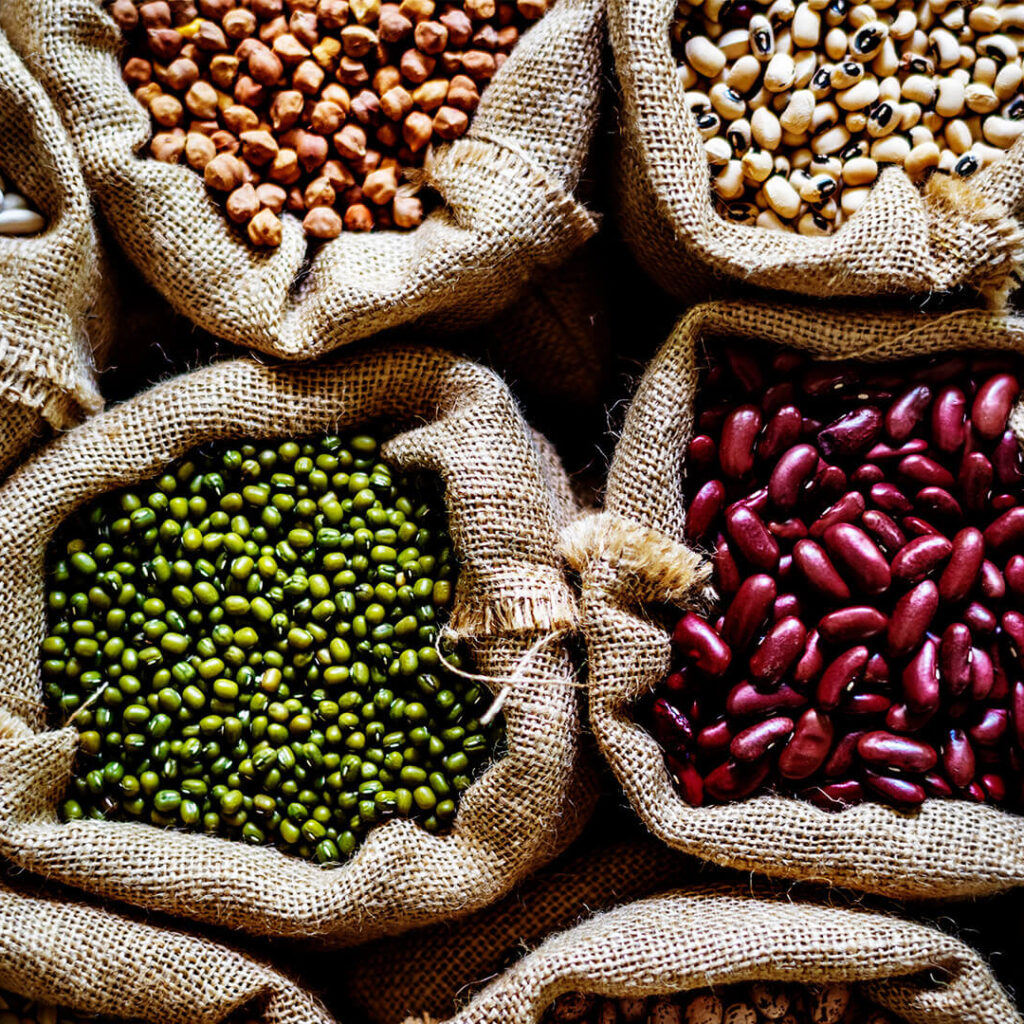In this article, we’ll delve into some of the most common myths surrounding vegan nutrition and uncover the truth behind them.
In recent years, the popularity of veganism has surged as more people become aware of the health, environmental, and ethical benefits of a plant-based lifestyle. However, along with the growing interest in veganism, numerous myths and misconceptions about vegan nutrition have emerged.
Myth 1: Vegans Lack Sufficient Protein
One of the most pervasive myths about vegan nutrition is that plant-based diets lack sufficient protein. However, this couldn’t be further from the truth. While animal products are indeed rich sources of protein, there are plenty of plant-based protein sources available to vegans.
Legumes, such as beans, lentils, and chickpeas, are excellent sources of protein, as are tofu, tempeh, seitan, and edamame. Additionally, whole grains like quinoa, oats, and brown rice, as well as nuts and seeds, also provide protein. By including a variety of these protein-rich foods in their diet, vegans can easily meet their protein needs.

Various Legumes
Myth 2: Vegan Diets Are Deficient in Essential Nutrients
Another common misconception is that vegan diets are deficient in essential nutrients such as vitamins B12, iron, calcium, and omega-3 fatty acids. While it’s true that certain nutrients may require special attention on a vegan diet, with proper planning, vegans can obtain all the nutrients their bodies need.
For example, vitamin B12, which is primarily found in animal products, can be obtained through fortified foods like nutritional yeast, fortified plant-based milk, and supplements. Iron-rich plant foods such as the following can easily help vegans meet their iron needs. :
- leafy greens
- legumes
- fortified cereals
- seeds
Similarly, calcium can be obtained from fortified plant-based milk, tofu, leafy greens, and almonds, while omega-3 fatty acids can be sourced from flaxseeds, chia seeds, walnuts, and algae-based supplements.
Myth 3: Vegan Diets Are Low in Energy
Some people believe that vegan diets are inherently low in energy and can leave individuals feeling tired and lethargic. However, this myth is unfounded. In reality, a well-planned vegan diet can provide ample energy to support an active and healthy lifestyle.
Whole plant foods such as fruits, vegetables, whole grains, and legumes are rich in carbohydrates, which serve as the body’s primary source of energy. Additionally, these foods are also packed with vitamins, minerals, fiber, and antioxidants, which can help boost energy levels and promote overall well-being. By focusing on nutrient-dense whole foods and ensuring an adequate intake of calories, vegans can maintain high energy levels throughout the day.
If want to challenge the popular view that athletes can’t survive on a plant-based diet and that vegan nutrition isn’t enough to sustain muscle and give you energy, check out the YouTube video below and finally understand that you don’t need to eat meat to be an athlete.
Myth 4: Vegan Diets Are Expensive
Another misconception surrounding veganism is that it’s expensive and inaccessible to those on a budget. While it’s true that some vegan speciality products can be pricey, a true plant-based diet where you aren’t eating lots of processed vegan food, is very affordable. The key is for it to be centred around whole, unprocessed foods.
Staples such as grains, legumes, fruits, and vegetables are often more budget-friendly than animal products and can be purchased in bulk or in-season for added savings. Additionally, cooking meals at home using simple, inexpensive ingredients is a cost-effective way to eat vegan. With a bit of creativity and resourcefulness, it’s entirely possible to enjoy a nutritious and satisfying vegan diet without breaking the bank.
Myth 5: Vegan Diets Are Boring and Restrictive
Finally, there’s a common misconception that vegan diets are bland, boring, and overly restrictive. However, this couldn’t be further from the truth. In reality, vegan cuisine is incredibly diverse and flavourful, drawing inspiration from a wide range of culinary traditions around the world.
From hearty stews and curries to vibrant salads and stir-fries, there’s no shortage of delicious vegan recipes to explore. Additionally, with the growing availability of plant-based meat and dairy alternatives, vegans can enjoy familiar comfort foods like burgers, pizzas, and ice cream without compromising on taste or texture. With so many delicious and nutritious options available, veganism is anything but boring or restrictive.
While there are certainly myths and misconceptions surrounding vegan nutrition, the truth is that a well-planned plant-based diet can be incredibly healthy, balanced, and satisfying. By debunking these common myths and providing accurate information, we can empower individuals to make informed dietary choices and reap the many benefits of a plant-based lifestyle.
The Eatwell Guide by the Vegan Society is a good starting point to start planning how you can have an effective plant-based diet.
Whether motivated by health, environmental concerns, or compassion for animals, embracing veganism can lead to a happier, healthier, and more sustainable future for all.
